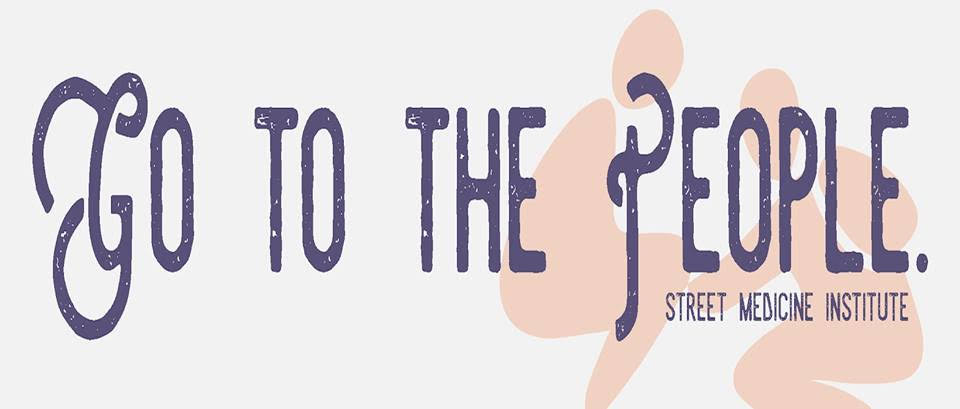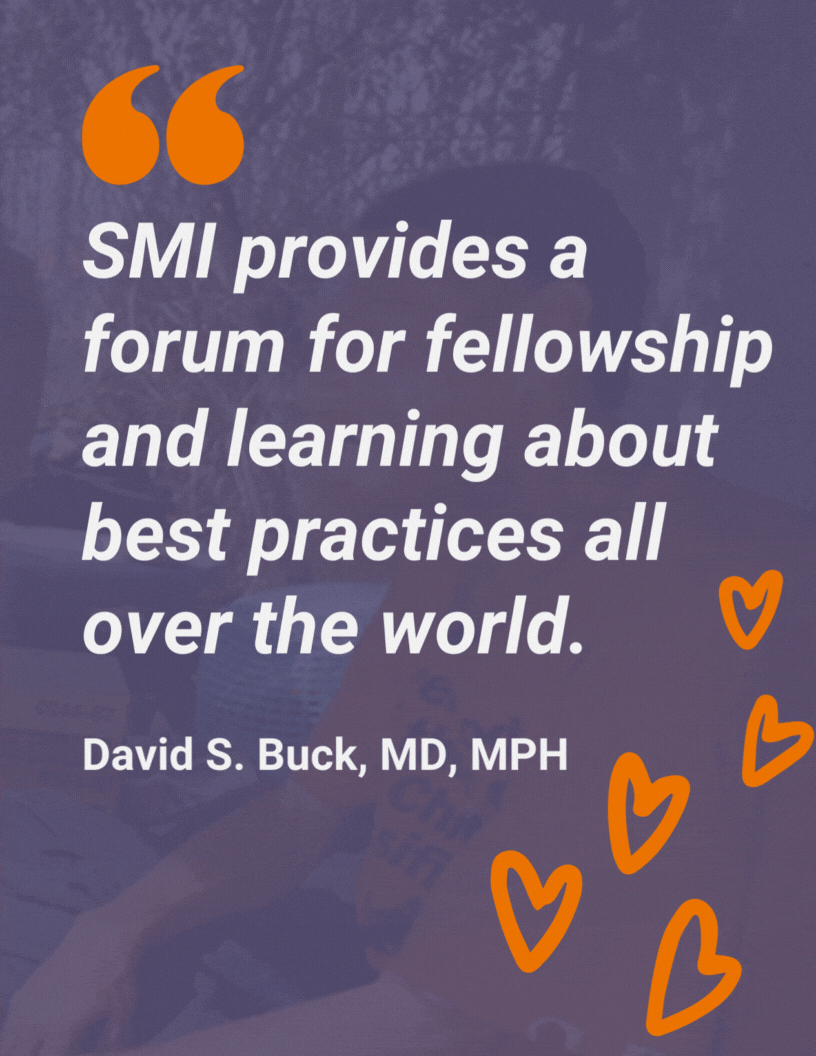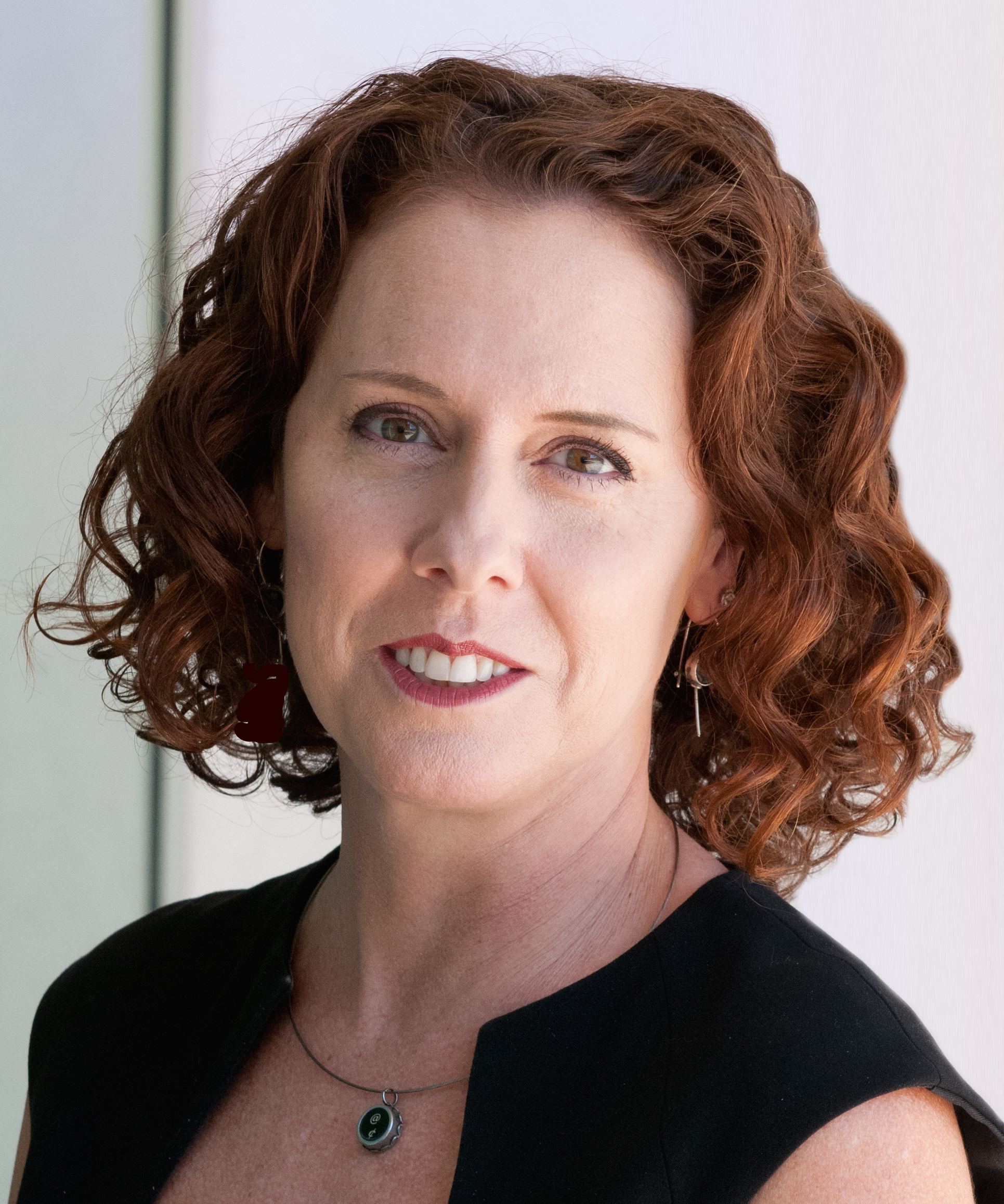 Kendall brings a wide range of executive leadership experience in social services, higher education, and cultural preservation. She began her career directing a shelter program and, since that time, has devoted her efforts to outreach services. Over her career, she has launched numerous programs to reduce barriers, increase inclusiveness, and bring dignity, hope, and support to the places where people need it the most. She has significant experience partnering with the medical community, including working in emergency departments, chairing several regional medical coalitions, and training medical professionals through the American College of Physicians, state medical associations, hospitals, medical schools, offices, and clinics.
Kendall brings a wide range of executive leadership experience in social services, higher education, and cultural preservation. She began her career directing a shelter program and, since that time, has devoted her efforts to outreach services. Over her career, she has launched numerous programs to reduce barriers, increase inclusiveness, and bring dignity, hope, and support to the places where people need it the most. She has significant experience partnering with the medical community, including working in emergency departments, chairing several regional medical coalitions, and training medical professionals through the American College of Physicians, state medical associations, hospitals, medical schools, offices, and clinics.
The Street Medicine Institute has been fortunate enough to have several volunteers make a difference in key projects over the past year. Please reach out to [email protected] if you are interested in volunteering with the Street Medicine Institute!
Read More
It is with deep sadness the SMI Board of Directors mourns the loss of our colleague and friend, Dr. David Deci. It remains shocking to be thinking of Dave retrospectively - I still find myself wishing to discuss some nuanced matter with him or looking forward to seeing his face on the next zoom call and hearing about his post-retirement life in New England. We invite the SMI community to share your memories and reflections of Dave. These will remain as a memorial to him and to his tireless work for the unsheltered homeless.
Read More
SMI Honors Dr. Dave Deci
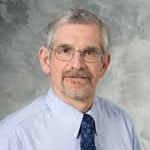 (April 2023) It is with great sadness that we inform the Street Medicine Institute community of the passing of our esteemed colleague, Dr. Dave Deci. Dr. Deci was a dedicated board member who brought passion and commitment to his work, always striving to improve the lives of those experiencing homelessness through street medicine. His contributions to the Street Medicine Institute were immeasurable, and he will be deeply missed. We extend our heartfelt condolences to Dr. Deci’s family and friends during this difficult time. The Street Medicine Institute will honor Dr. Deci’s legacy by continuing to carry out our mission with the same level of dedication and compassion that he embodied.
(April 2023) It is with great sadness that we inform the Street Medicine Institute community of the passing of our esteemed colleague, Dr. Dave Deci. Dr. Deci was a dedicated board member who brought passion and commitment to his work, always striving to improve the lives of those experiencing homelessness through street medicine. His contributions to the Street Medicine Institute were immeasurable, and he will be deeply missed. We extend our heartfelt condolences to Dr. Deci’s family and friends during this difficult time. The Street Medicine Institute will honor Dr. Deci’s legacy by continuing to carry out our mission with the same level of dedication and compassion that he embodied.
Read More
Permission to Grieve
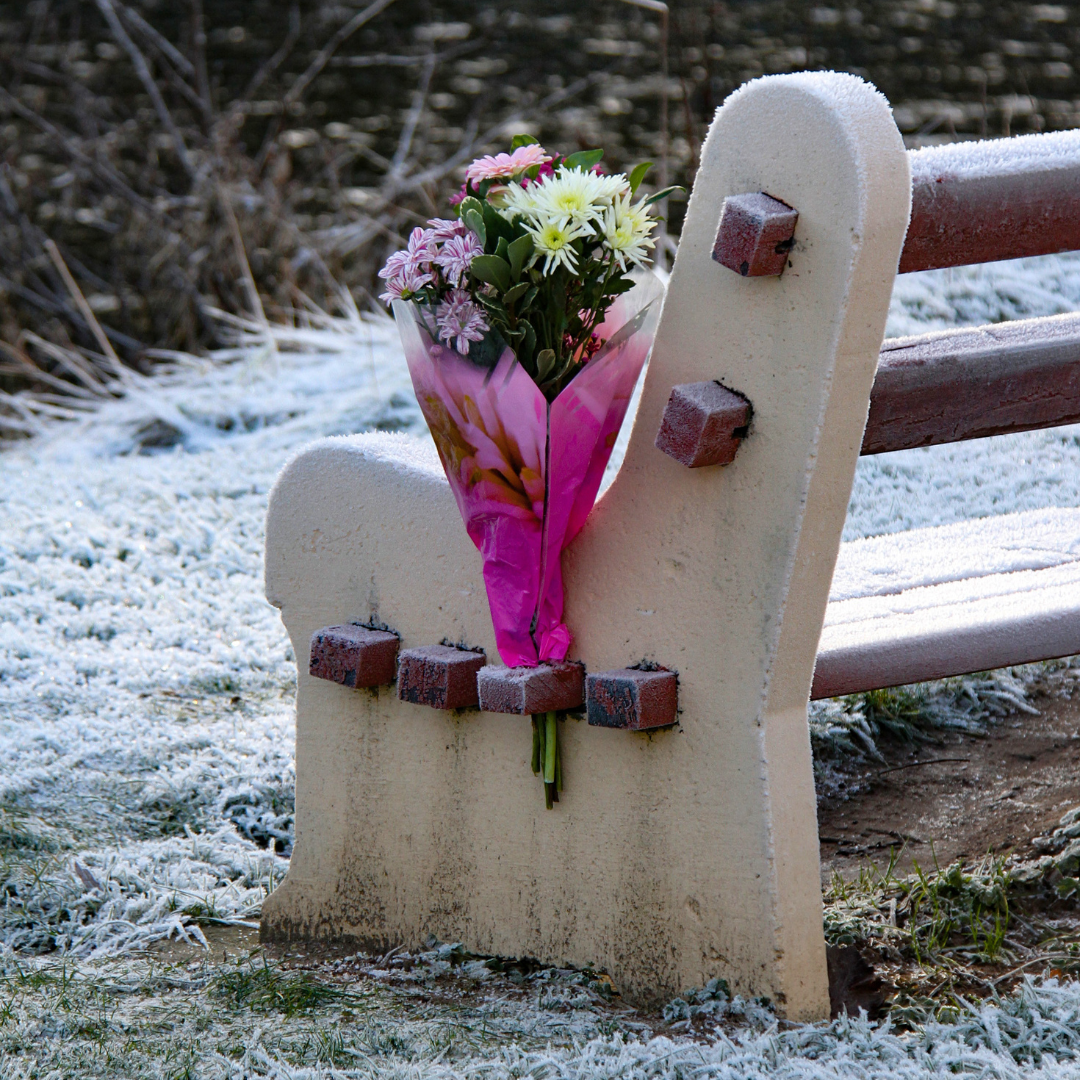 I started thinking about grief in the context of this work when one of our friends from the street died, and I felt like I had no place to put this grief. When a close friend or a family member dies, there is an expected course of suffering. Everyone around you understands what that looks like and there is no explanation needed for why you are grieving. But when one of our patients dies, I felt like I had no box I could put this grief into that would make sense to anyone outside of our work. I couldn’t expect even my friends who work in other areas of health care to understand. Comparative suffering has no place in grief, but I find it to be a natural response. In my community of street medicine providers, I had the sense that I needed “permission” to grieve, and that grief was only acceptable if I really knew the person best or longest or cared about them the most. I didn’t feel as though I was allowed a seat at the grief table if I couldn’t give a reason for being there. In hindsight, I can acknowledge that much of this was my own psyche, but in talking with colleagues I have found that many others felt similarly. So what do we do with this grief? What box does it fit into?
I started thinking about grief in the context of this work when one of our friends from the street died, and I felt like I had no place to put this grief. When a close friend or a family member dies, there is an expected course of suffering. Everyone around you understands what that looks like and there is no explanation needed for why you are grieving. But when one of our patients dies, I felt like I had no box I could put this grief into that would make sense to anyone outside of our work. I couldn’t expect even my friends who work in other areas of health care to understand. Comparative suffering has no place in grief, but I find it to be a natural response. In my community of street medicine providers, I had the sense that I needed “permission” to grieve, and that grief was only acceptable if I really knew the person best or longest or cared about them the most. I didn’t feel as though I was allowed a seat at the grief table if I couldn’t give a reason for being there. In hindsight, I can acknowledge that much of this was my own psyche, but in talking with colleagues I have found that many others felt similarly. So what do we do with this grief? What box does it fit into?
Read More
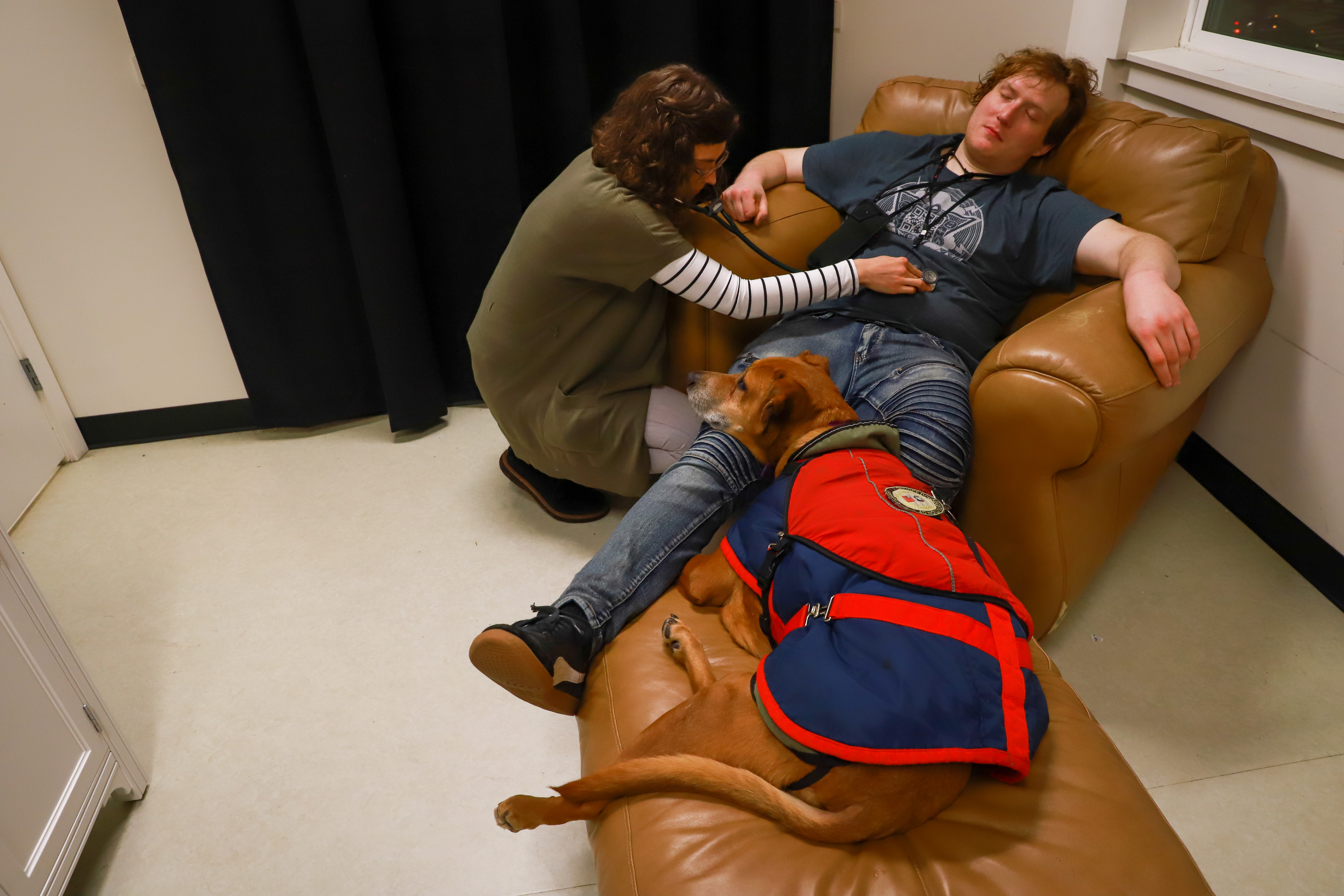 For those of us who work with and within communities experiencing homelessness, we know the value that a companion animal (or emotional support animal or service animal) can have for someone living unhoused. That animal may be the sole trusted companion, and the one who does not judge and loves unconditionally. It may be the one who provides a purpose in life, whether it is something to care for, get out of bed for, or survive for. As someone once told us, “[My pet] is just real happy just to see me exist.”
For those of us who work with and within communities experiencing homelessness, we know the value that a companion animal (or emotional support animal or service animal) can have for someone living unhoused. That animal may be the sole trusted companion, and the one who does not judge and loves unconditionally. It may be the one who provides a purpose in life, whether it is something to care for, get out of bed for, or survive for. As someone once told us, “[My pet] is just real happy just to see me exist.”
Read More
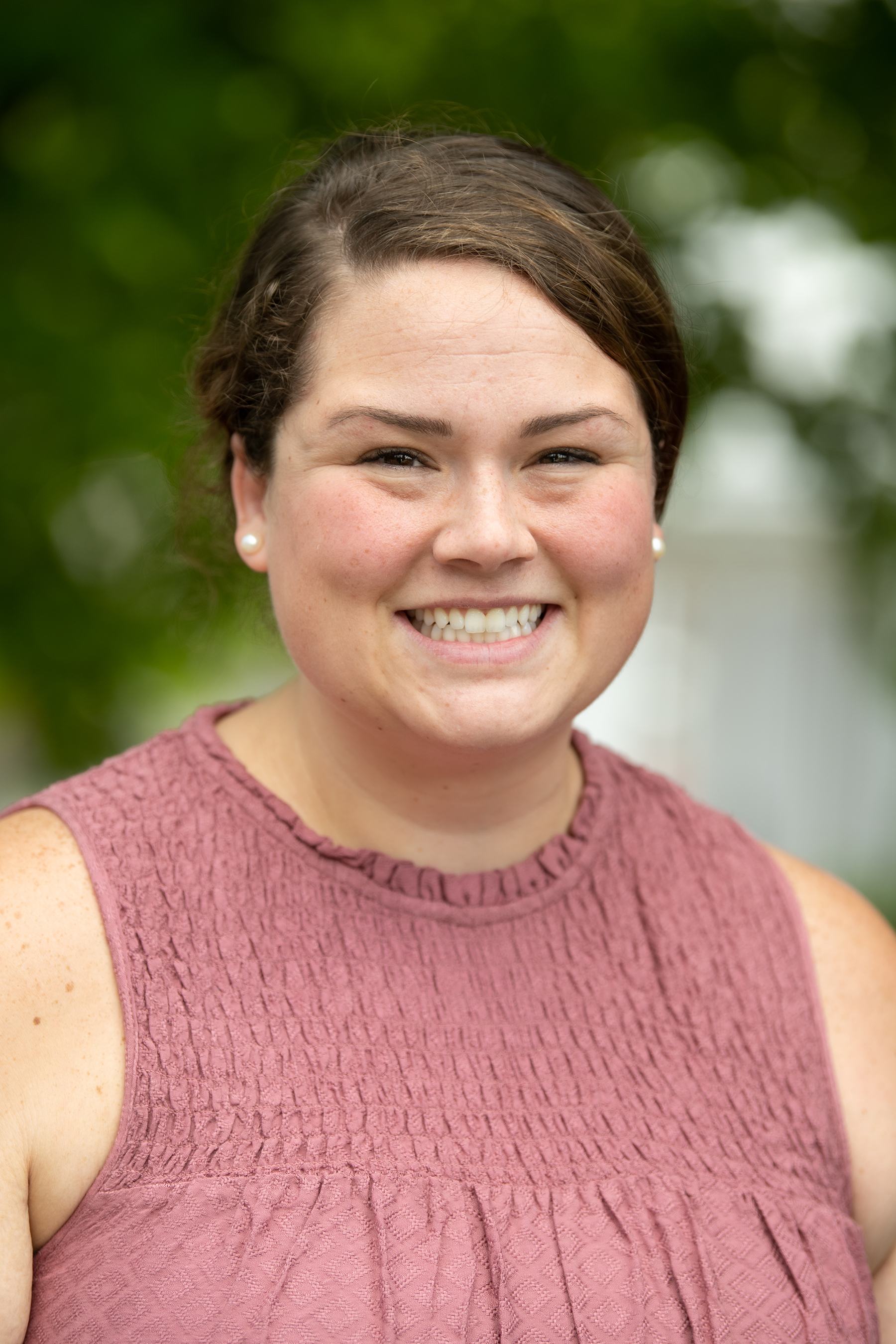 My name is Marisa Charley, and I work and teach in the Shepherd Program for Poverty and Inequalities Studies at a university in Lexington, VA. Our mission is to understand and address the causes and consequences of poverty and inequalities in ways that respect the dignity of every person.
My name is Marisa Charley, and I work and teach in the Shepherd Program for Poverty and Inequalities Studies at a university in Lexington, VA. Our mission is to understand and address the causes and consequences of poverty and inequalities in ways that respect the dignity of every person.
Read More
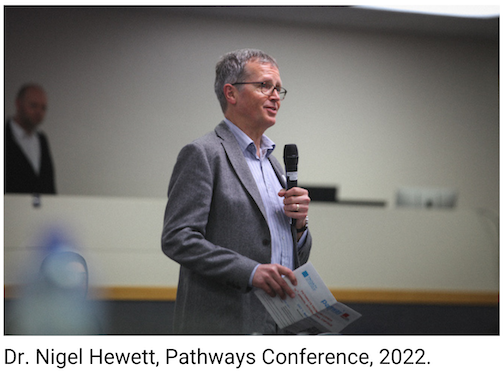 Tribute to Dr. Nigel Hewett by Andrew Hayward, Director of the UCL Institute of Epidemiology and Health Care and Co-Director of the UCL Collaborative Centre for Inclusion Health and colleagues at CCIH
Tribute to Dr. Nigel Hewett by Andrew Hayward, Director of the UCL Institute of Epidemiology and Health Care and Co-Director of the UCL Collaborative Centre for Inclusion Health and colleagues at CCIH
Read More
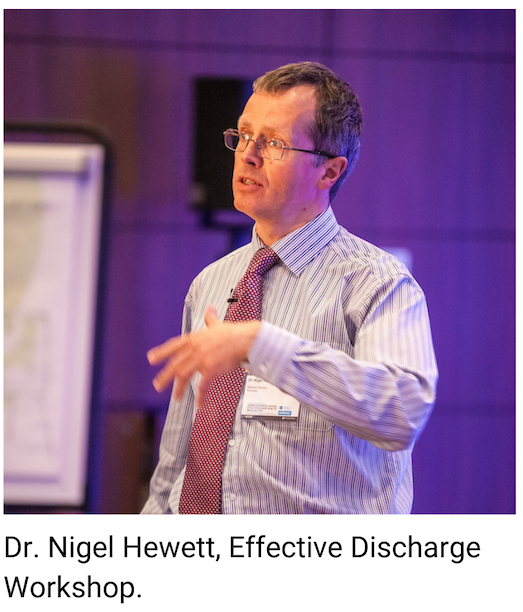 Dr. Nigel Hewett retired this summer after 12 years as the founding medical director of Pathway. He was also the founding Secretary and the driving force behind the development of the UK Faculty for Homeless and Inclusion Health, which we launched in 2011. I first met Nigel when Pathway’s founder, Professor Aidan Halligan, invited me to see a new specialist homeless service at University College Hospital in London (I didn’t realize at the time but Aidan was also checking me out as a potential CEO, for an organization that didn’t yet exist). Nigel was there following a similar experience.
Dr. Nigel Hewett retired this summer after 12 years as the founding medical director of Pathway. He was also the founding Secretary and the driving force behind the development of the UK Faculty for Homeless and Inclusion Health, which we launched in 2011. I first met Nigel when Pathway’s founder, Professor Aidan Halligan, invited me to see a new specialist homeless service at University College Hospital in London (I didn’t realize at the time but Aidan was also checking me out as a potential CEO, for an organization that didn’t yet exist). Nigel was there following a similar experience.
Read More
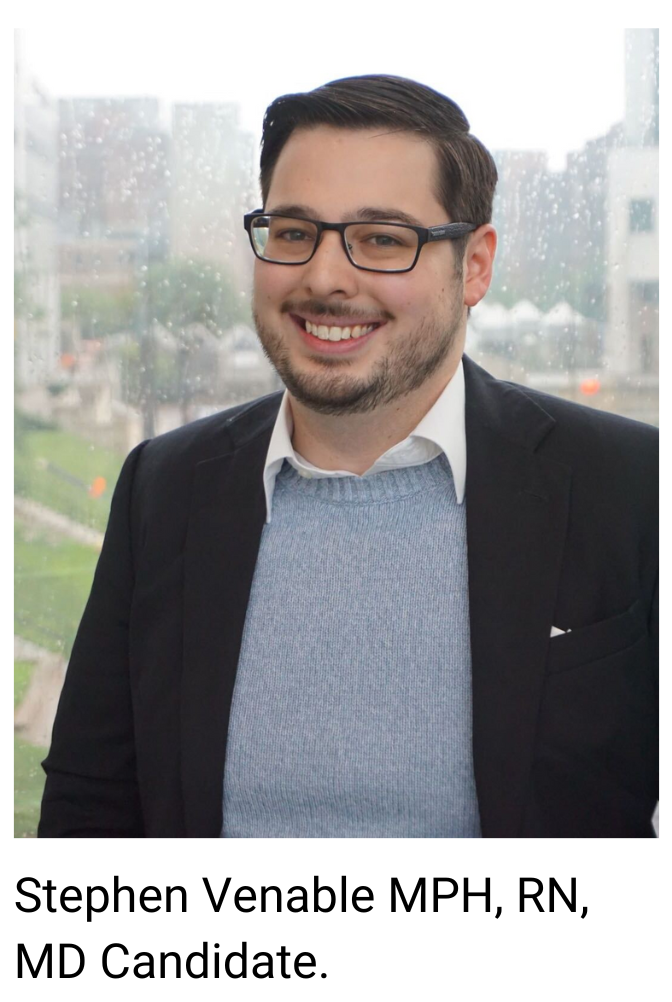
Dear Street Medicine Family,
As the year prepares for its end, we would like to take a moment to thank the Street Medicine Institute Student Coalition Board of 2021/2022 for all their hard work and dedication. This includes our outgoing Chief Coordinator, Sophie Roe, who has been an exemplar of leadership, dedication, and kindness throughout the last year. During her time leading SMISC, she has helped strengthen the core of our organization, and I know that, due to her efforts, we stand in a much better position to help our fellow students care for our friends on the street. We also wanted to wish the best to our outgoing board members Kerina Yao and Sarah Hludzinski as they move on to their next phases. We know that they both will continue making a difference in the lives of others no matter where they go, and we could not be prouder of them for it.
Read More
Guest Post: Liability, Malpractice, & Safety Policies In Academic-Based Street Medicine Programs: A Workshop Summary from ISMS 2022
 There were many facets of the COVID-19 pandemic that considerably impacted the lives of persons experiencing homelessness. In response, individuals and families composing the homeless population adapted. The same was true for organizations serving the community. Shelters adapted their floor plans to increase “social distancing”; large-venue congregant shelters opened to accommodate the increased numbers of individuals who found themselves without housing; restrictions on outdoor camping were loosened which in turn made homelessness far more visible; cities struggled with new issues of allowing ‘tent cities’ in parks and parking lots regardless if they were officially sanctioned or not; agencies serving the population fiscally re-evaluated increased need for services with decreased funding from donations; everyone worried about the virus and simply surviving through the worst of the pandemic.
There were many facets of the COVID-19 pandemic that considerably impacted the lives of persons experiencing homelessness. In response, individuals and families composing the homeless population adapted. The same was true for organizations serving the community. Shelters adapted their floor plans to increase “social distancing”; large-venue congregant shelters opened to accommodate the increased numbers of individuals who found themselves without housing; restrictions on outdoor camping were loosened which in turn made homelessness far more visible; cities struggled with new issues of allowing ‘tent cities’ in parks and parking lots regardless if they were officially sanctioned or not; agencies serving the population fiscally re-evaluated increased need for services with decreased funding from donations; everyone worried about the virus and simply surviving through the worst of the pandemic.
Read More
Jim Withers, MD and Joel Hunt, PA 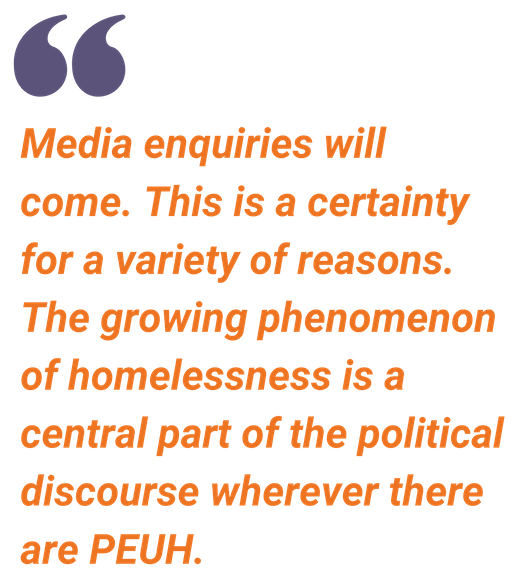 The act of providing direct medical care to those living on the streets is not just an important service, but one that provokes society. Time and again, street medicine programs activate the attention of the public and the media. This is an almost guaranteed part of the street medicine journey and deserves discussion. This paper is not a definitive work on the subject of media relations, but hopefully serves as a guide based on many decades of experience by street medicine experts.
The act of providing direct medical care to those living on the streets is not just an important service, but one that provokes society. Time and again, street medicine programs activate the attention of the public and the media. This is an almost guaranteed part of the street medicine journey and deserves discussion. This paper is not a definitive work on the subject of media relations, but hopefully serves as a guide based on many decades of experience by street medicine experts.
Read More
Jim Withers' Story
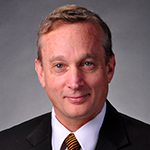
Dr. Jim Withers is the Founder of the Street Medicine Institute. The Institute evolved as an off-shoot of his groundbreaking work with Pittsburgh Mercy's Operation Safety Net, the street medicine program he established and continues to work with in Pittsburgh, PA. Dr. Withers describes his experience with street medicine in his Ted Talk here.
Read More
Guest Post: Writing a Human Rights Prescription for Governments: How the street medicine movement can leverage human rights law for transformative change
At the heart of both street medicine and human rights stands one animating principle: dignity. Anyone who practices street medicine understands that homelessness constitutes an affront to human dignity. To bear witness to systemic violations of human dignity, and stand in solidarity with those who experience it, is the daily work of street medicine practitioners. Practitioners in this field can vividly describe the dehumanization experienced by people who are unhoused – ritualized in our legal systems, our social services, our streets, our schools, and yes – our healthcare systems.
Read More
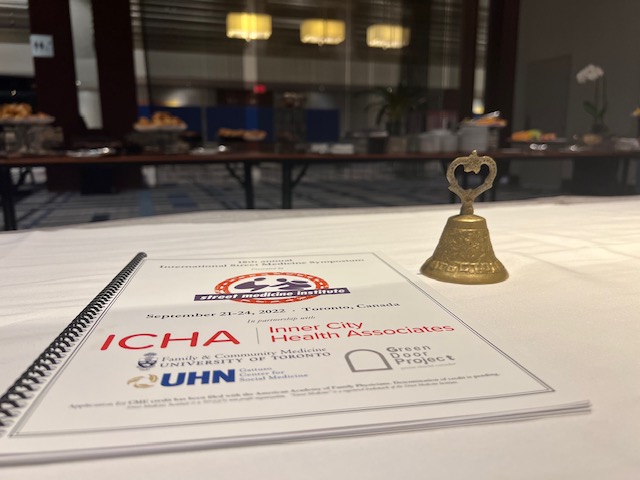 All of us at Inner City Health Associates (ICHA) were so thrilled to host the 18th International Street Medicine Symposium in Toronto from September 21st – 24th this year! It had been such a long and gruelling time for all since we were all able to get together and we were so galvanized and inspired by the passion, kindness, commitment and innovative work being done throughout the world for to support the health and housing of unsheltered people and communities.
All of us at Inner City Health Associates (ICHA) were so thrilled to host the 18th International Street Medicine Symposium in Toronto from September 21st – 24th this year! It had been such a long and gruelling time for all since we were all able to get together and we were so galvanized and inspired by the passion, kindness, commitment and innovative work being done throughout the world for to support the health and housing of unsheltered people and communities.
Read More
Congrats On An Amazing ISMS 18!
What an amazing symposium we all just witnessed a few short weeks ago! I had such a great week and wish to congratulate and thank many of you who helped make it so successful:
Read More
18 Things We Learned From #ISMS18
Here are 18 things we learned from #ISMS18, by the Street Medicine Institute Student Coalition.
Read More
We are currently looking for more people who want to be involved with the Street Medicine Educator Coalition! Learn more about the Educator Coalition. Currently, we have opportunities for positions on our Leadership Team and Education Work Group.
Read More
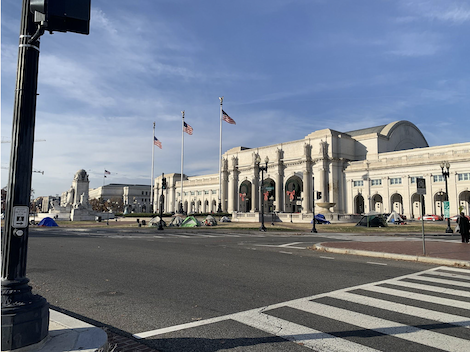 There’s something jarring about walking towards the U.S. Capitol and being surrounded by rows of tents that so many District of Columbia residents call home. Just blocks from the White House, there are encampments of people living without adequate shelter, access to food, or healthcare. In a city rich with resources and arguably the center of power in the United States, nowhere is it more obvious where we as a nation have made the political choice to intentionally value certain lives over others.
There’s something jarring about walking towards the U.S. Capitol and being surrounded by rows of tents that so many District of Columbia residents call home. Just blocks from the White House, there are encampments of people living without adequate shelter, access to food, or healthcare. In a city rich with resources and arguably the center of power in the United States, nowhere is it more obvious where we as a nation have made the political choice to intentionally value certain lives over others.

